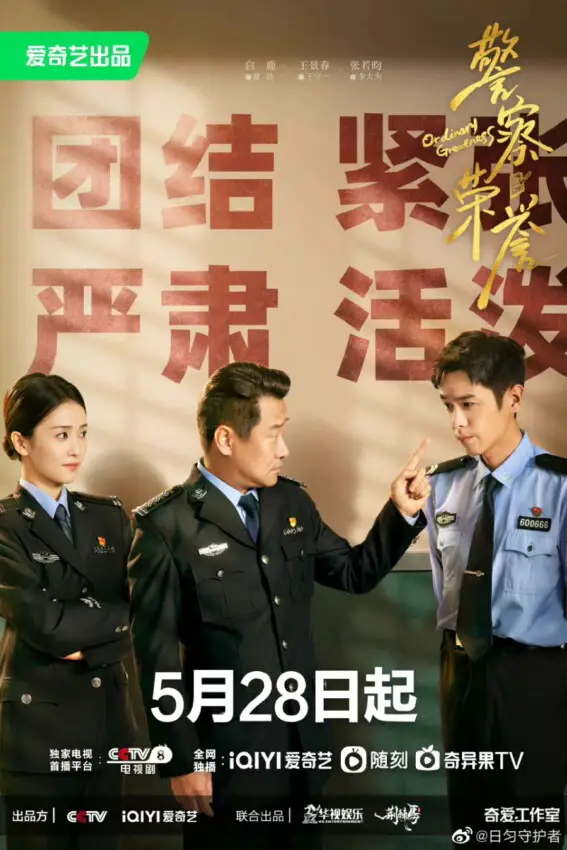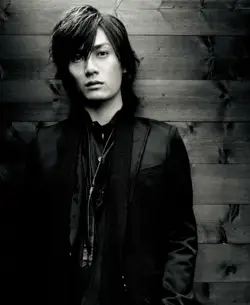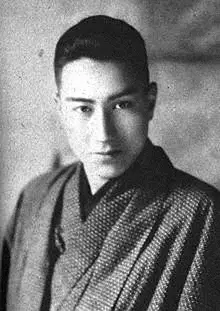
Drama Digest
The plot centers on four aspiring police officers from Balihe police station Li Da Wei, a “thorn head” who was sent to the police academy by his parents because he was too disobedient; Yang Shu, a rigid and upright person who has a law degree from Peking University; Xia Jie, a sensitive young woman who inherited her father’s desire to work in law enforcement; and Zhao Ji Wei, a country boy who goes straight ahead. The director Wang Shou Yi selects four tutors for them based on their traits four. The four recruits learned during their one-year internship that grassroots work differs from what they had anticipated. After some initial struggles, they progressively become moved by the pride and honor they have gained through their work. They establish trusting bonds with their superiors and teachers. The police officers support and enhance one another as they develop into exceptional public servants.
The Feel-Good Part
This is written authentically with a strong dose of irony and comedy that gets vast laughs from little things like an absurdly touching diaper theft case. It is a complex, personal account of Chinese society’s wide range of daily societal pressures. This outstanding, understated drama explores the darkest, most pitiful to the most significant, most sympathetic facets of humanity in a way that feels like a shared coming-of-age experience.
The Disappointing Factor
Too many demands were placed on the police, and eventually, it felt surreal. Protecting and serving entails being their parents, psychiatrist, nurse, locksmith, and hospital bill payer out of your wallet. You must accept and repent if you are slapped. I believe that the producers felt compelled to produce that “warm fuzzy” drama.
In-Depth Analysis
This story could be more sophisticated. Real-world challenges and relatively minor crimes are visible. (compared to other crime shows). And this is the appeal of the performance. You come across each case that our inexperienced police officers deal with regularly. We know individuals who battle over frivolous disagreements, kidnapped children, sexual harassment, internet fraud, break-ins, unruly neighbors, stolen bicycles, etc. None of these are serious offenses, and they are likely daily occurrences for police officers everywhere, not just in China. The mentor-mentee relationship and how, despite their extreme differences, they gradually come to know and respect one another. The story moves at a respectable pace. Since this is slice-of-life, it is to be anticipated that these 38 episodes will contain some slower sections. Though I did drift slightly in the second half, the drama concludes with a powerful emotional impact. In some situations, the public was informed about the solution rather than being shown. Hospitals and lodging are suitably constructed, given that the drama is set in a small town. High-tech offices and contemporary-looking institutions need to be visible. The little things are what lift your spirits. In addition, I adore Jason Zhang’s rendition of the show’s theme tune, “A Little.” The ideal music for both happy and sad occasions as well as the busy work life of the characters. The best part there is no dramatization. All performers use live and studio recordings in addition to their natural voices.
Star Power
I was astounded by the seasoned performers. Only Zhang Ruo Yun, among the younger cast, came close to the level of the veterans, and it’s likely because his character gave him many chances to demonstrate his acting prowess. Even Bai Lu, who was listed as one of the prominent cast members, gets less time on screen than the other three rookies. I had hoped to see her more, but she got little attention. Although Bai Lu is Bai Lu, her acting is never subpar, her character is somewhat reserved, and her tales tend to center too much on her mother rather than her cases. I was pleased to see a very different aspect of Xu Kai Cheng after “Pearl Eclipse” and to see him again. The Police Chief, Zhang Ruo Yun’s mentor Ning Li, and Xu Kai Cheng’s mentor Zhao Yang are all accomplished performers who deserve praise. These three seasoned performers are incredible and significantly raise the bar for this drama.
Overall Opinion
The conclusion of a story signifies the conclusion of one voyage and the start of another. For some, the learning curve has been incredibly steep, and there has been a tangible improvement that can only come from experience gained in the classroom of life. The hero’s adventure has been dramatically expanded and multiplied. Despite the less-than-ideal working circumstances, policing is a calling, and only those who are called can follow its drumbeat. Without any anticipation of financial reward, ordinary people are moved to perform extraordinary acts of bravery by a lifelong commitment to serving their community. I don’t often say this, especially about C dramas, but I could have easily viewed another ten episodes of this drama. However, this production is a unique beast in that it is top-notch from start to finish. It is an example of a masterful visual narrative. I chuckled, shook my fists, sighed, and wept for the Bai Li He Station’s men and women as soon as I entered their world.




















